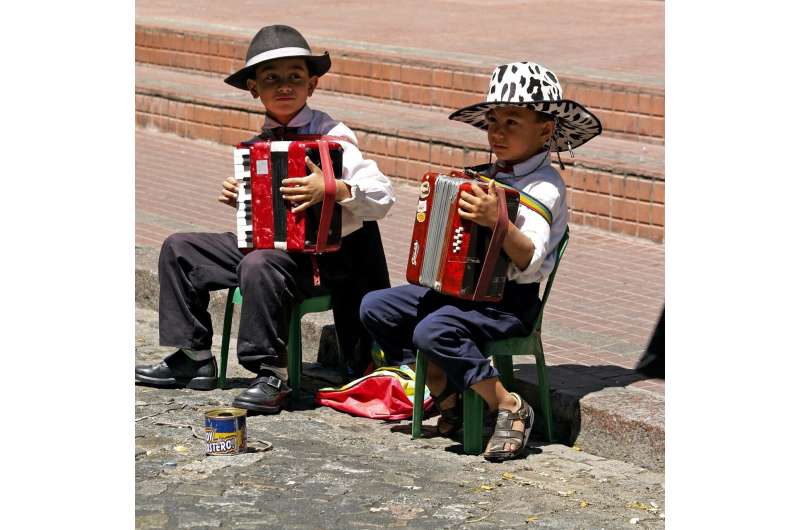This article has been reviewed according to Science X's editorial process and policies. Editors have highlighted the following attributes while ensuring the content's credibility:
fact-checked
trusted source
proofread
Music therapy could help children with brain injuries

A new pilot study has highlighted the potential of a music therapy technique to help children with severe acquired brain injuries (ABI) meet their walking rehabilitation goals.
The first of its kind research project suggests rhythmic auditory stimulation could augment the physiotherapy ordinarily offered to children and young people who sustain a severe acquired brain injury—of whom there are believed to be around 350 each year in the UK.
The practice aims to improve walking speed and quality of movement by using rhythms to provide cues for patients' stepping rate. In establishing neurological connections between the auditory prompts and physical movements, the technique has been shown to facilitate smoother and more coordinated walking patterns.
While the potential of rhythmic auditory stimulation has never before been explored in the context of treating children with ABIs, the approach has been found to improve walking speed among people who have suffered a stroke, those living with Parkinson's disease and, more recently, children with cerebral palsy.
All participants in the pilot study, published in the International Journal of Therapy and Rehabilitation and involving a music therapy expert from Anglia Ruskin University (ARU), showed improvement as a result of rhythmic auditory stimulation being added to their rehabilitation program, with the most marked advances evident in walking quality.
In light of these findings, the study's authors believe adding the technique to other interventions could help improve the outlook for children with ABIs.
Dr. Jonathan Pool, Senior Research Fellow at Anglia Ruskin University's Cambridge Institute for Music Therapy Research and an author of the study, said,
"This is the first study to look at rhythmic auditory stimulation for children and young people with acquired brain injury."
"As a pilot study, it provides initial evidence of the effect of music on gait rehabilitation for this population and has revealed insights into some of the issues for researchers in this area."
"While showing variation across participants in the benefits of rhythmic auditory stimulation, the study findings are encouraging and indicate that the detailed assessment of quality of movement should be considered alongside other tests when measuring functional gains in gait rehabilitation."
More information: Gemma Kelly et al, Rhythmic auditory stimulation to improve gait rehabilitation outcomes for children with acquired brain injury: a pilot study, International Journal of Therapy and Rehabilitation (2023). DOI: 10.12968/ijtr.2022.0121


















